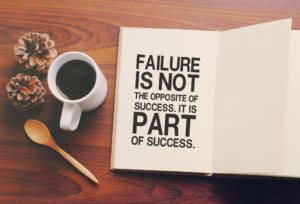
Economic gardening is more than just growing your own, it’s seeing that one generation looks out for the next.
There was a fascinating op-ed in the New York Times recently about Silicon Valley’s “old money” and how one generation of tech titans mentored and invested in the next generation.
University of Washington history professor Margaret O’Mara sketched out a family tree of sorts— tracing the influence the founders of Fairchild Semiconductor and Hewlett-Packard had on Apple, PayPal, Netscape and AOL and how those founders and their networks helped today’s world beaters: Uber, Lyft and AirBnB.
Many early tech founders cashed out and went into venture capital funding the next generation of entrepreneurs who grew the Silicon Valley ecosystem.
The article ends with a call to action. Tech titans– now facing backlash from consumers and regulators–should change their ways and use their windfalls to do something meaningful for the rest of the world.
It’s hard to disagree with that conclusion. But I came away with another thought.
Silicon Valley, was built on the vision and entrepreneurial energies of talented engineers who took risks, leveraged Stanford University’s amazing resources and built companies that achieved global dominance.
While many cities and regions have tried to replicate that success, none have quite been able to create anything to seriously rival the Valley’s dominance in technology.
But Professor O’Mara, in drawing a family tree of business leaders mentoring the next wave of entrepreneurial talent, may offer a way forward for other communities.
Perhaps, communities can ask: “Who are today’s local business titans and what are they doing to ensure that the next generation of entrepreneurs will succeed?”
There are many examples of philanthropy, particularly in Boca Raton where the arts, health care and education have received enviable and much needed support.
Some of that philanthropy will have an economic impact—having a great hospital or a world class neuroscience institute is a wonderful calling card for our community. Likewise, building institutions such as FAU and Lynn University will undoubtedly yield a return on investment.
Having robust cultural institutions are also investments in economic development. Talent and forward looking companies seek quality of life and place when deciding where to locate.
But unless I’m missing it (and please tell me if I am) I’m not seeing as much mentoring and venture investing as can be expected in an area as rich in talent and experience as Boca Raton and Delray Beach.
If it is happening, it needs to be publicized so that other talented and successful business and civic leaders can be encouraged to offer their wisdom and experience to the up and coming stars in our community.
There are notable exceptions. I know some generous angel investors and we have been blessed to see some successful entrepreneurs use their wealth to help others climb the ladder of success.
But I also know a whole lot of successful people who remain insulated in terms of the community.
Their success stories, the lessons they’ve learned and the mistakes they’ve made, would be invaluable to the next wave of people trying to build businesses and careers.
It seems Silicon Valley has figured it out—despite the much needed debate occurring on the harmful affects of some of the technology that has emerged from that hotbed of innovation.
There’s a model there to be looked at. We have an amazing amount of successful leaders in every field imaginable roaming our beaches, golf courses, waterways etc.
Can you imagine what would happen if a few hundred or even a few dozen decided to invest in some of the talent coming out of our high schools and colleges?



